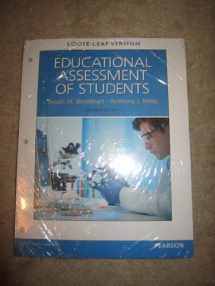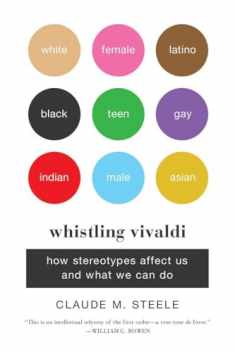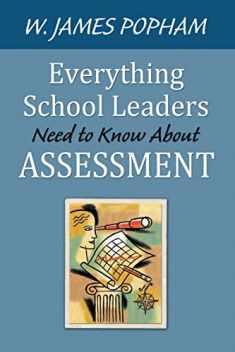
Educational Assessment of Students, Loose-Leaf Version (7th Edition)
Book details
Summary
Description
Note: This is the loose-leaf version of Educational Assessment of Students and does not include access to the Pearson eText. To order the Pearson eText packaged with the loose-leaf version, use ISBN 0133830268.
Written for a first course in classroom assessment and educational testing, this text is particularly suited for courses that seek to teach students (1) how to use and construct formative and summative assessments for classroom teaching and (2) the basics of educational measurement. The book provides complete coverage of educational assessment, including developing plans that integrate teaching and assessment; using formative assessment strategies and providing effective feedback to students; crafting objective, performance, and portfolio assessments; evaluating students and discussing evaluations with parents; and interpreting state-mandated tests and standardized achievement tests.
From reviews of the book:
“I find the style of this text very engaging and accessible for students. The checklists in the item creation chapters and the examples throughout are very strong and [are] concrete ways to solidify sometimes abstract or new concepts for students. . . . The key strengths to this text are the number and quality of examples and visual aids (charts, tables) that clarify concepts for beginning assessment students. Another strength is the applied approach to writing assessment items.”
--Heidi Legg Burross, University of Arizona
“In my opinion, this is the most comprehensive and user-friendly textbook on classroom assessment currently in publication. It is appropriate for both undergraduate and graduate courses, it supports the course objectives well, and the students like it and praise it. . . . An overall benefit of this text is that it parallels the content we have selected for this course so well that we can eliminate some of the lecture material that we traditionally used and focus more on the practical application of the principles.”
--Kathryn Anderson Alvestad, University of Maryland, College Park
“This textbook has been thorough in each of its editions, reflecting the contemporary issues, practices and thought related to educational assessment with no glaring omissions. The authors have done a fine job in covering the relevant topics both in the necessary depth and scope appropriate for an introductory educational assessment course. . . . The writing, illustrations, and graphics are clear and engaging, making the textbook a favorite among our graduate students.”
--Charles Thomas, George Mason


We would LOVE it if you could help us and other readers by reviewing the book
Book review





